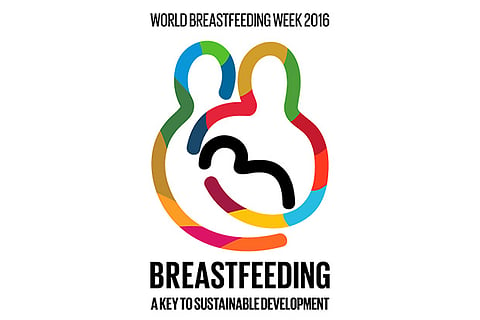

Chennai
Only about 48 per cent of mothers in the state exclusively breastfeed their infants under the age of six months, as per recent National Family Health Survey-4 (20152016). The reasons for this are several, such as, an increase in the number of Caesarean sections, ignorance and absence of feeding facilities in public places. Experts say women can overcome these limitations through constant support and guidance from health staff and family members, especially their spouses.
Why is it crucial:
Breast milk or mother’s milk is abundant with antibodies and nutrients. The milk offers a protective shield for the baby and strengthens its immune system. The baby is naturally adaptable to mother’s milk and it is easily digestible. There are studies that have found several other benefits of mother’s milk. Dr Anitha Arockiasamy, president, Indian Home Healthcare, says, “There is scientific evidence that mother’s milk can protect the baby from diarrhoea and ear infections.”
Doctors say babies have to be exclusively breastfed till they are six months old. Beyond that, while there are other food supplements in the baby’s diet, breast milk is a must till at least a year.
Dr Madhu Purushothaman, senior consultant, paediatrics, SRM Institute of Medical Sciences, says, “Some replace breast milk with formula, a processed form of cow’s milk; it is still not an equal replacement. We often advise that babies have to be breastfed till about a year, though it can continue till they are two, as per World Health Organisation’s norms.”
Obstacles faced:
Doctors link the spiralling rates of C-sections and gestational diabetes to the low rates of breastfeeding. Dr Jayashree Jayakrishnan, lactation consultant, Fortis Malar Hospitals, says, “Some start with formula when the mother is recovering after delivery. They begin breastfeeding only after a week or two. When the mother is ready, she is not being stimulated to breastfeed. But, even in C-section cases, breastfeeding can begin from day one.”
She adds that mothers with gestational diabetes can also express milk. “They assume that they can’t and are demotivated to try further and switch over to formula. They should be told that they can express milk though they can’t see it. So, they just have to continue unhindered,” she says.
However, there are also problems for mothers who have a normal delivery. Dr Jayashree adds, “A few medicines, used to induce labour contractions, desensitise the hormone that helps the baby to latch on. While we often look at factors concerning the mother, we should also look at what is stopping the baby, such as a tongue tie. This can be rectified through a short clipping procedure.”
Everyone has a role to play:
Though breastfeeding primarily involves the mother and the baby, family members play a constructive role, point out experts. Dr Jayashree adds, “We have seen that breastfeeding becomes easier for women who may have trouble initially, but this eases when their husbands encourage them.”
Nurse and health staff can also help mothers with constant guidance, says Dr Madhuri Prabu, neonatal-paediatrician, Motherhood Hospital. “At the hospital, we ensure that the nurse makes the mother breastfeed her baby every two hours. In 95 per cent of cases, they continue with it even after being discharged,” she says.
Dr Anitha adds that making provisions for breastfeeding in public places is equally important.
“Malls have started setting up facilities and other public places too should be equipped to support it. There are several social factors that make mothers hesitant about breastfeeding in public places. They should go about it normally. They could maybe carry a long blanket for the purpose, when they step out,” she says.
POINTS TO PONDER
Visit news.dtnext.in to explore our interactive epaper!
Download the DT Next app for more exciting features!
Click here for iOS
Click here for Android